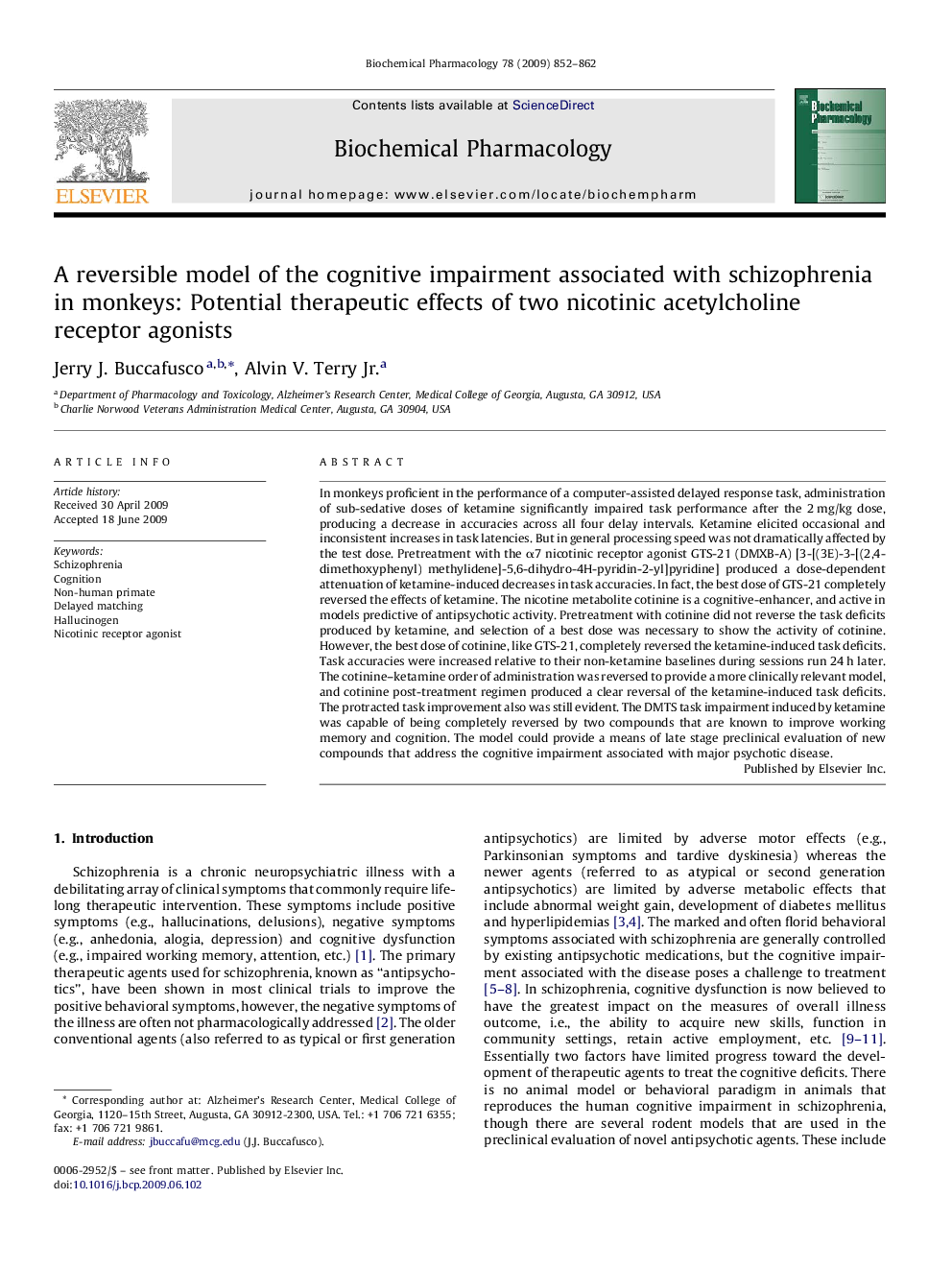| کد مقاله | کد نشریه | سال انتشار | مقاله انگلیسی | نسخه تمام متن |
|---|---|---|---|---|
| 2513867 | 1118438 | 2009 | 11 صفحه PDF | دانلود رایگان |

In monkeys proficient in the performance of a computer-assisted delayed response task, administration of sub-sedative doses of ketamine significantly impaired task performance after the 2 mg/kg dose, producing a decrease in accuracies across all four delay intervals. Ketamine elicited occasional and inconsistent increases in task latencies. But in general processing speed was not dramatically affected by the test dose. Pretreatment with the α7 nicotinic receptor agonist GTS-21 (DMXB-A) [3-[(3E)-3-[(2,4-dimethoxyphenyl) methylidene]-5,6-dihydro-4H-pyridin-2-yl]pyridine] produced a dose-dependent attenuation of ketamine-induced decreases in task accuracies. In fact, the best dose of GTS-21 completely reversed the effects of ketamine. The nicotine metabolite cotinine is a cognitive-enhancer, and active in models predictive of antipsychotic activity. Pretreatment with cotinine did not reverse the task deficits produced by ketamine, and selection of a best dose was necessary to show the activity of cotinine. However, the best dose of cotinine, like GTS-21, completely reversed the ketamine-induced task deficits. Task accuracies were increased relative to their non-ketamine baselines during sessions run 24 h later. The cotinine–ketamine order of administration was reversed to provide a more clinically relevant model, and cotinine post-treatment regimen produced a clear reversal of the ketamine-induced task deficits. The protracted task improvement also was still evident. The DMTS task impairment induced by ketamine was capable of being completely reversed by two compounds that are known to improve working memory and cognition. The model could provide a means of late stage preclinical evaluation of new compounds that address the cognitive impairment associated with major psychotic disease.
Figure optionsDownload as PowerPoint slide
Journal: Biochemical Pharmacology - Volume 78, Issue 7, 1 October 2009, Pages 852–862